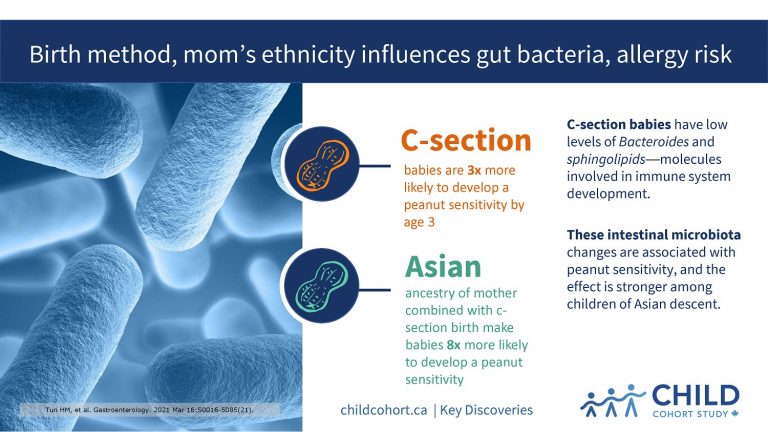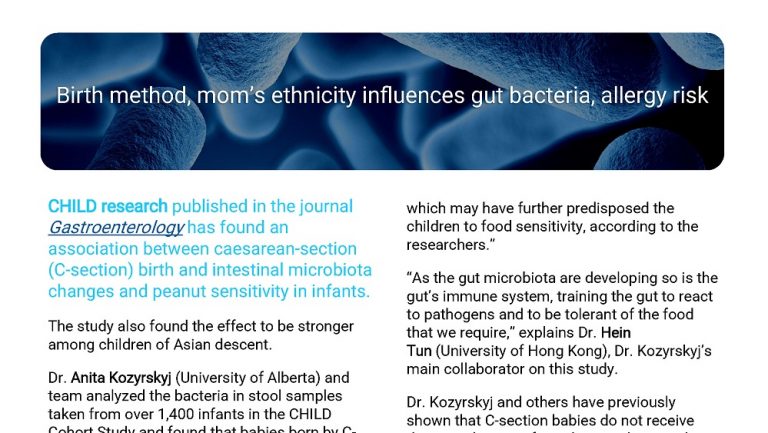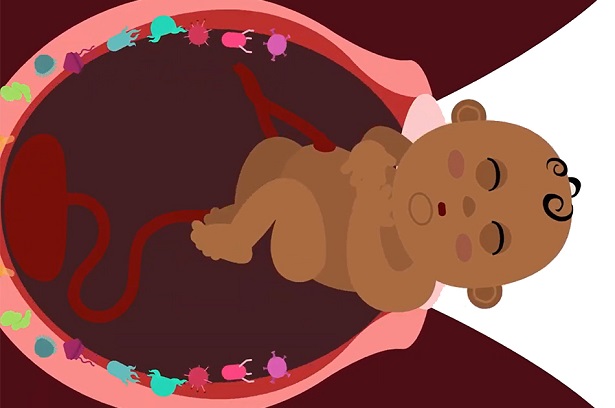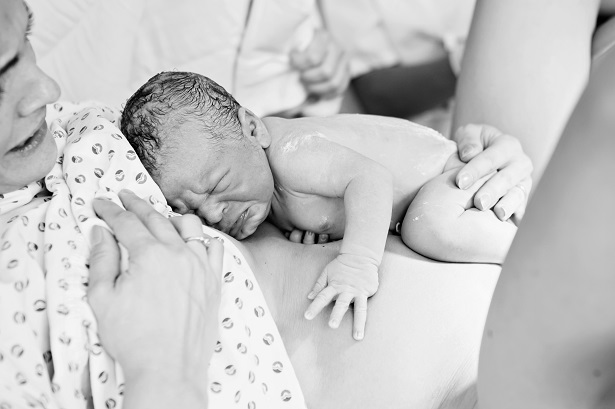Birth method, mom’s ethnicity influences gut bacteria, allergy risk
CHILD research published in the journal Gastroenterology has found an association between caesarean-section (C-section) birth and intestinal microbiota changes and peanut sensitivity in infants. The study also found the effect to be stronger among children of Asian descent.
Dr. Anita Kozyrskyj (University of Alberta) and team analyzed the bacteria in stool samples taken from over 1,400 infants in the CHILD Cohort Study and found that babies born by C-section had low levels of Bacteroides – a critical bacteria for immune system development.
LOW LEVELS OF BACTERIODES & SPHINGOLIPIDS
When tested for sensitivity to various allergens, those with low Bacteroides levels were found to be three times as likely to develop a peanut sensitivity by age three. For those born to mothers of Asian descent, the risk was eight times greater.
The researchers further discovered that the infants with low levels of Bacteroides also had lower levels of sphingolipids – molecules involved in immune system development – which may have further predisposed the children to food sensitivity, according to the researchers.
“As the gut microbiota are developing so is the gut’s immune system, training the gut to react to pathogens and to be tolerant of the food that we require,” explains Dr. Hein Tun (University of Hong Kong), Dr. Kozyrskyj’s main collaborator on this study.
Dr. Kozyrskyj and others have previously shown that C-section babies do not receive the same bacteria from their mothers as do vaginally delivered babies.
She comments that studies looking at ways to counteract this by giving babies probiotics or by exposing them to their mother’s vaginal bacteria, have not proven as effective as hoped.
The best path is to avoid caesarean birth unless it is medically necessary.
“With this evidence at hand, the parent and the obstetrician might choose a different birth mode,” she said.





